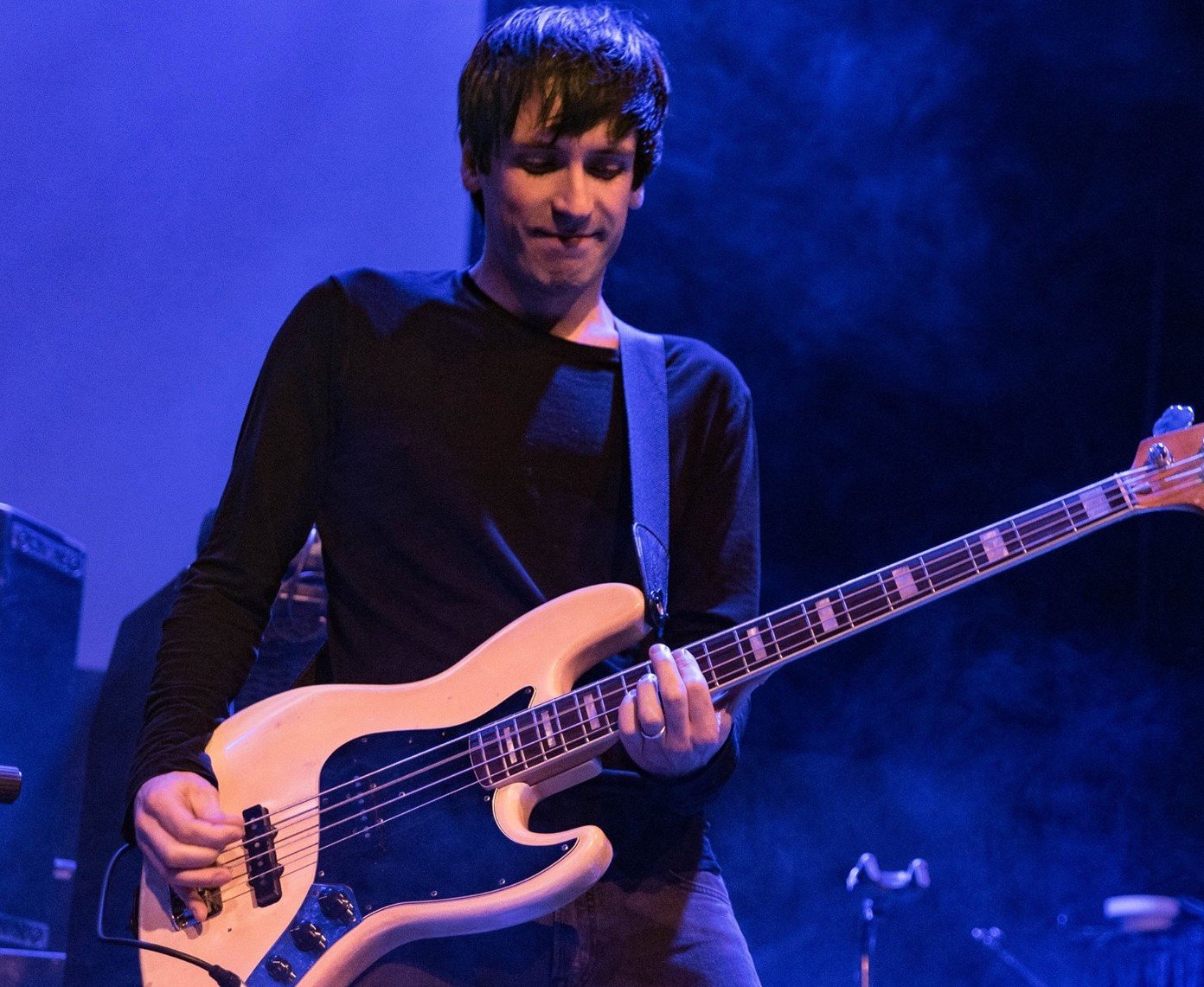Interview: Graeme Smillie
Track’s project lead, Graeme, is leaving to focus on his career as an academic and professional musician. We caught up between gigs to find out why Track has meant so much to him
Hi Graeme! You’ve been with Track since the start. What’s the aim of the project?
The whole point of Track is to get really meaningful experiences for the young people – to show them what it’s like to be in the studio, collaborating with other people and making ideas happen.
I’ll always remember Jack, a participant in the first Track, moaning about music sessions they’ve done before – people coming in saying ‘here’s a song and it’s going to be all sunshine and rainbows’. That’s not at all what we want to do.
It’s about teasing out of all the participants what they all want to make, and pointing them in the direction of things that might inspire them. We’re giving them the facilities – the recording studio, the musicians – but also the knowledge base for some of their ideas to be realised.
Track 4, in autumn/winter 2021, was your last one as project lead. Tell us about it.
We built on work that was done in the Glad Cafe in summer 2021. That was quite an intense three-week period, led by the amazing Ross Clark, where people wrote songs, and [because of Covid-19 restrictions] we did it with much more of a DIY vibe, recording on laptops. A lot of the same young people came back for the autumn session, at Riverside Music College in Busby.
By then the Covid-19 restrictions weren’t so intense – you weren’t even allowed to sing in summer 2021!
We had a group of five or six young people, and we worked on completely new ideas for music: we always try to create something original when we’re in the Track workshops.
The music reflects the ideas the young people came in with. For example, Jamie said, ‘I want to make something really heavy’ – with lyrics about isolation, and specifically isolation in the care system. We try to develop those ideas and show the steps in the process, even down to developing imagery and album artwork. After the sessions are over, we want everyone to have the knowledge to do it again for themselves.
We’re unpacking all the elements that go into making music that the participants like, and hopefully giving them something that at the end they are proud to have made.
“We’re giving young people permission to run with an idea and be creative with it, which I think is vital.”
What Do young people get out of Track?
I think it’s very specific to each individual. In the first Track, not everyone wrote an entire song – for some, playing percussion was really big for them, and just participating and attending was important.
There have been loads of young people I’ve seen come on leaps and bounds. There are examples of young people who have become workshop facilitators, and quite a few that keep coming back again and again.
There were some in the summer Glad Cafe EP who didn’t feel comfortable recording their voices, so that was a big focus for the Riverside sessions. In the end we could say, ‘your voice is on all of this, and it’s 100% you’. That’s been a really big step.
How do you feel when you see the next generation expressing themselves through music?
It’s huge. It’s way more accessible now to be able to make music, because the technology is more affordable, but there’s still problems with who gets access.
With Track we’re giving people access to knowledge and expertise and skills, but also permission to run with an idea and be creative with it, which I think is vitally important.
Young people have incredibly interesting perspectives that often don’t get heard in mainstream culture. So to do this work feels huge.
I came to music through local youth centres and clubs and community music. It’s been hugely important to me.
You’re stepping away to focus on academic work and touring as a musician, but will you really be leaving Track for good?
You become so invested in the young people – I’m always going to be interested in what they’ve done since taking part in Track. It’s not something you just walk away from.
